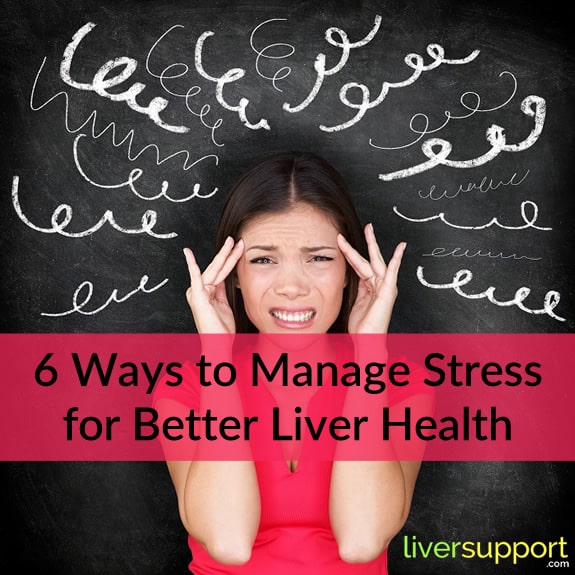
Previous
6 Tea Ingredients to Help Detox Your Liver and Aid Digestion

Next
4 Remarkable Milk Thistle Benefits
6 Ways to Manage Stress for Better Liver Health
Managing stress is vital to overall health, and especially to those who suffer from compromised liver function.
The body doesn’t know what is upsetting you and doesn’t care! It doesn’t know if it is an acute stressor or a chronic one; it reacts basically the same way to either stimulus. Our physiological response to stress stimulates the hypothalamic-pituitary-adrenal (HPA) axis and the sympathetic nervous system. This is known as the stress response, the releasing of key hormones which modulate the immune response and increase the development of the inflammatory reaction in the body.
One of the chemicals, glucocorticoids, can increase the hepatic inflammation response and even increase the risk of hepatocellular carcinoma, or liver cancer. The pituitary produces corticotrophin and B-endorphin which have pro-inflammatory properties. The hypothalamus tries to regulate the HPA axis by secreting even more pro-inflammatory hormones. The interactions that take place as part of the stress response cause increased inflammation throughout the entire body. This inflammation can eventually impact negatively on liver function.
How to Manage Stress
Stress can impair the immune system and cause significant inflammation in the body. Inflammation is what leads to damage and eventually to scarring, or cirrhosis, in the liver. Reducing stress in our lives reduces inflammation* in the body, which just may improve liver function.
Six things we can do to reduce stress, include:
- Stress Relief – A proven blend of vitamins B, C and magnesium, along with calming herbs such as Valerian, hops and skullcap – Natural Wellness’s Stress Relief offers immune protection and supports the nervous system during times of high stress.
- Be Social – Social interactions have been shown to make a big difference in stress levels and the ability to manage stress. Get involved in some group activates.
- Exercise – Physical exercise has been proven to reduce anxiety and depression. Even a 30-minute walk every day can significantly reduce stress levels. Why not try a group exercise class to get some social contact in as well?
- Meditation – Even 5 to 10 minutes of meditation each day can significantly reduce stress levels and boost the immune system.
- Sleep – Getting a good night sleep goes a long way to lowering stress hormones and reducing inflammation, as the body needs sleep to regenerate and repair itself. If you have trouble relaxing and falling asleep at night, try Fast Asleep with melatonin (something that already naturally occurs in your body) in fast-acting sublingual tablet.
- Eat Right – A diet low in fat, sugar, and refined foods – but high in fruits and vegetables will help reduce inflammation and give your body what it needs to function, even when you are under stress.
*Editor’s Note: Inflammation can cause lots of health issues. Turmeric 95 is a potent and effective form of turmeric that destroys enzymes and proteins that cause inflammation. Learn about all of the benefits of Turmeric 95.
Chida, Y.; Sudo, N.; Kudo, C. (2006). Does stress exacerbate liver disease? J Gastroenterol Hepatol. 21):202-8. Retrieved on 7/31/16 from http://www.ncbi.nlm.nih.gov/pubmed/16460474.
Vere, C.C.; Streba, C.T.; Streba, L.M.; Ionescu, A.G.; Sima, F. (2009). Psychosocial stress and liver disease status. World Journal of Gastroenteroly. 15(24):2980-6. Retrieved on 7/31/16 from http://www.ncbi.nlm.nih.gov/pmc/articles/PMC2702105/.






